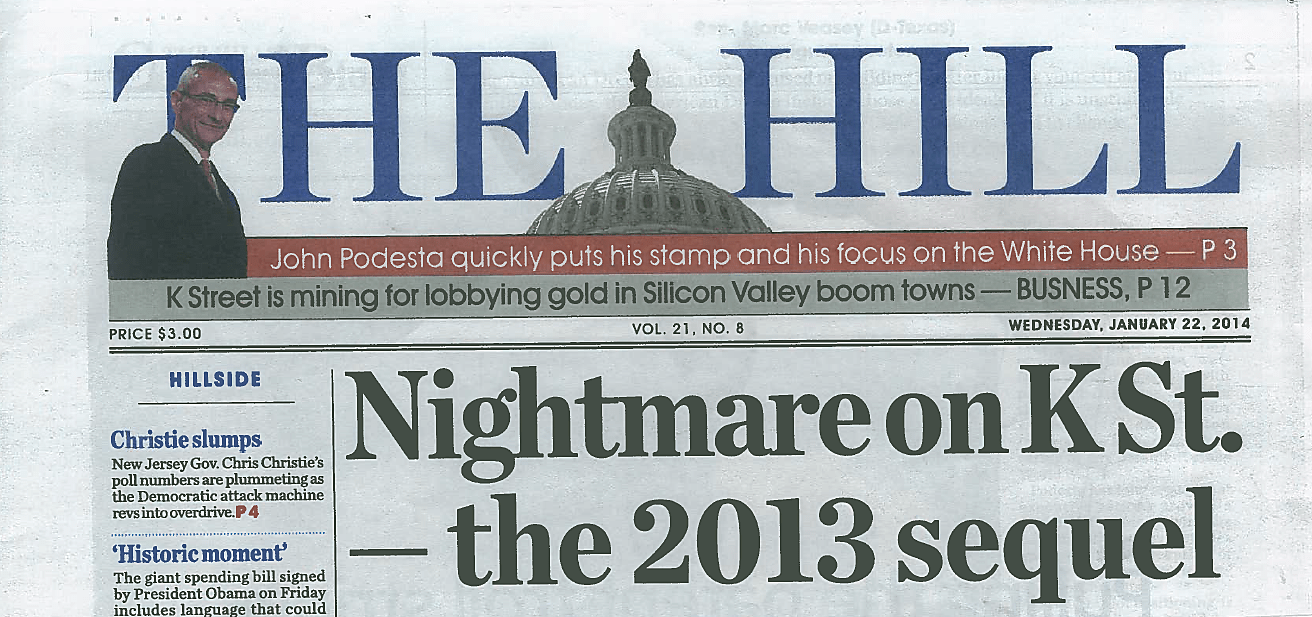The Hill, a newspaper covering Capitol Hill, published this scary headline this week:
What’s the nightmare? Lobbying revenues are down! How much? Well, The Hill doesn’t say. But the Washington Post reports:
The District’s 10 largest lobbying firms reported a collective 1 percent drop in lobbying revenue in 2013 compared with 2012, slipping to $226.3 million from $228.9 million.
Oh, the horror.
To be sure, the Post also notes that the revenue of the top 10 firms dropped 10 percent last year. So that’s a real cut. Still, these drops come after total lobbying expenditures doubled in a decade, peaking in those heady days of 2009 and 2010 when federal dollars were being handed out with wild abandon.
Why the slowdown since then? The Hill’s Kevin Bogardus and Megan Wilson note that “most lobby shops couldn’t escape the downward pull of a historically unproductive Congress.” Ah yes, that “least productive Congress” we keep hearing about. Well, this is what you get from an unproductive Congress: a tiny drop in expenditures on lobbying. Keep on being unproductive—of laws, regulations, taxes, grants, subsidies, loans, and bailouts—and maybe lobbying will keep on declining.
Of course, the lobbyists won’t take this lying down. Inside the same issue of The Hill, Wilson reports:
K Street lobbyists are racking up frequent flyer miles with regular trips to Silicon Valley in search of clients.
They are trading power suits for California casual to cash in on the explosive growth of technology lobbying, which has more than doubled over the past decade and shows no signs of slowing down.
Can’t keep a lobbyist down for long. As I’ve written before, Washington keeps telling tech executives, “Nice little company ya got there. Shame if anything happened to it.”
The most important factor in America’s economic future—in raising everyone’s standard of living—is not land, or money, or computers; it’s human talent. And every time some part of the human talent at another of America’s most dynamic companies is diverted from productive activity to protecting the company from political predation and even to engaging in a little predation of its own, it slows our economy down a bit. The parasite economy sucks in another productive enterprise, and we’ll all be poorer for it.
Meanwhile, a real “Nightmare on K Street” would be a blessing for the rest of us.

